Think swapping sugar for a “healthier” alternative is a smart move? Some of these substitutes may be doing more harm than good. From hidden weight gain to digestive issues and even hormone disruption, many so-called better choices still trigger cravings, blood sugar spikes, and metabolic confusion.
Labels like “keto-friendly” or “diabetic-safe” don’t always mean what they claim. Some options wreak havoc on gut health, while others keep the addiction to sweetness alive.
Before reaching for that sugar-free option, it’s important to understand what’s really happening in the body.
1. The “Natural” Trap – How Some Alternatives Are Just Sugar in Disguise
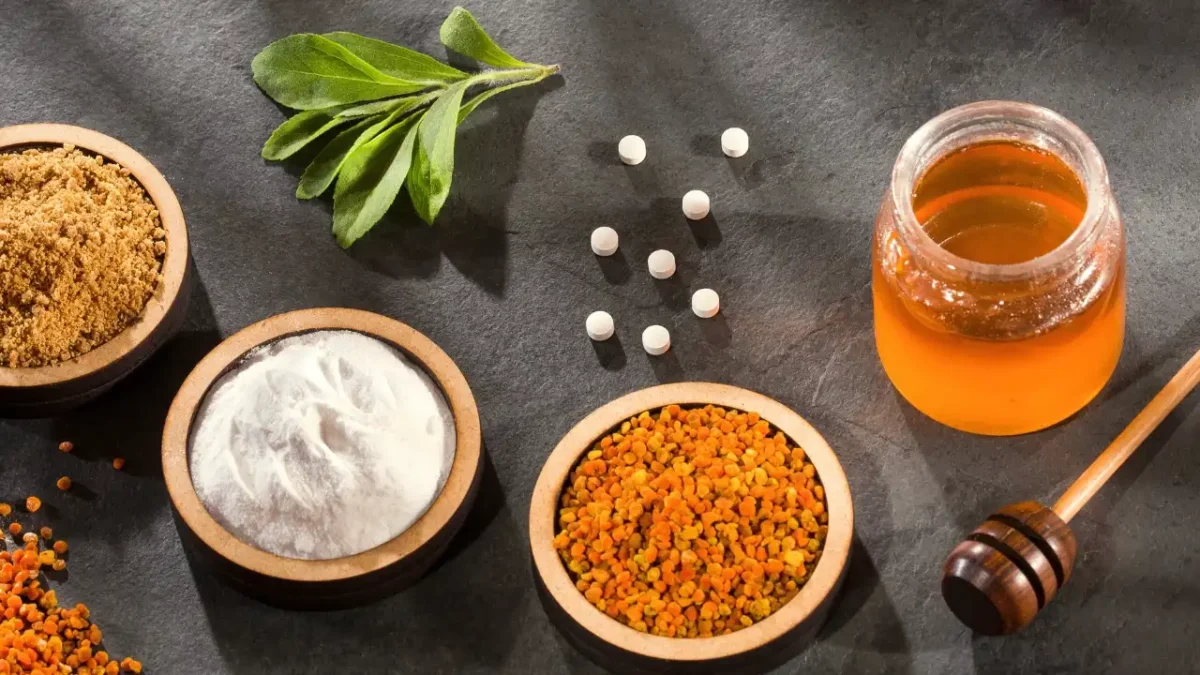
Many sweeteners labeled as “natural” are not as innocent as they seem. Agave nectar, coconut sugar, and date syrup might sound wholesome, but they can be just as problematic as regular sugar. Their glycemic impact varies, yet they still contribute to blood sugar spikes and insulin resistance over time.
Agave nectar, for example, is marketed as a better choice, but it contains up to 90% fructose. Excess fructose overloads the liver, leading to fat accumulation and increased triglycerides. Coconut sugar and date syrup, while slightly lower on the glycemic index, still contain glucose and fructose, meaning they affect blood sugar levels similarly to white sugar.
Many people unknowingly consume these alternatives in excess, thinking they’re guilt-free. Marketing plays a huge role in this misconception. Brands capitalize on the “natural” label, creating a false sense of security.
The body processes them much like regular sugar. Instead of blindly trusting labels, looking beyond the packaging and understanding what’s inside is crucial. Real whole foods and truly low-impact options are the best bet for keeping blood sugar stable.
2. Insulin Confusion – Why Your Body Still Reacts to Sugar Alcohols

Sugar alcohols, often found in “sugar-free” products, are not as harmless as they appear. Erythritol, xylitol, and sorbitol don’t contain traditional sugar, but they still trigger an insulin response in some people. That’s because the body recognizes them as sweet, prompting a metabolic reaction similar to sugar.
Even though they have fewer calories, they can still interfere with blood sugar regulation. Some studies suggest that certain sugar alcohols can cause a mild insulin release, tricking the body into expecting glucose. When no glucose follows, cravings increase, leading to overeating or energy crashes.
Another issue is how these sweeteners affect the gut. Unlike sugar, they are not fully absorbed in the small intestine. Instead, they reach the colon, where gut bacteria ferment them, often causing bloating, gas, and discomfort. Some individuals tolerate them well, but others experience significant digestive distress. Understanding this metabolic trickery helps in making better choices when cutting back on sugar.
3. Gut Damage – The Hidden Dangers of Erythritol, Xylitol, and Sorbitol
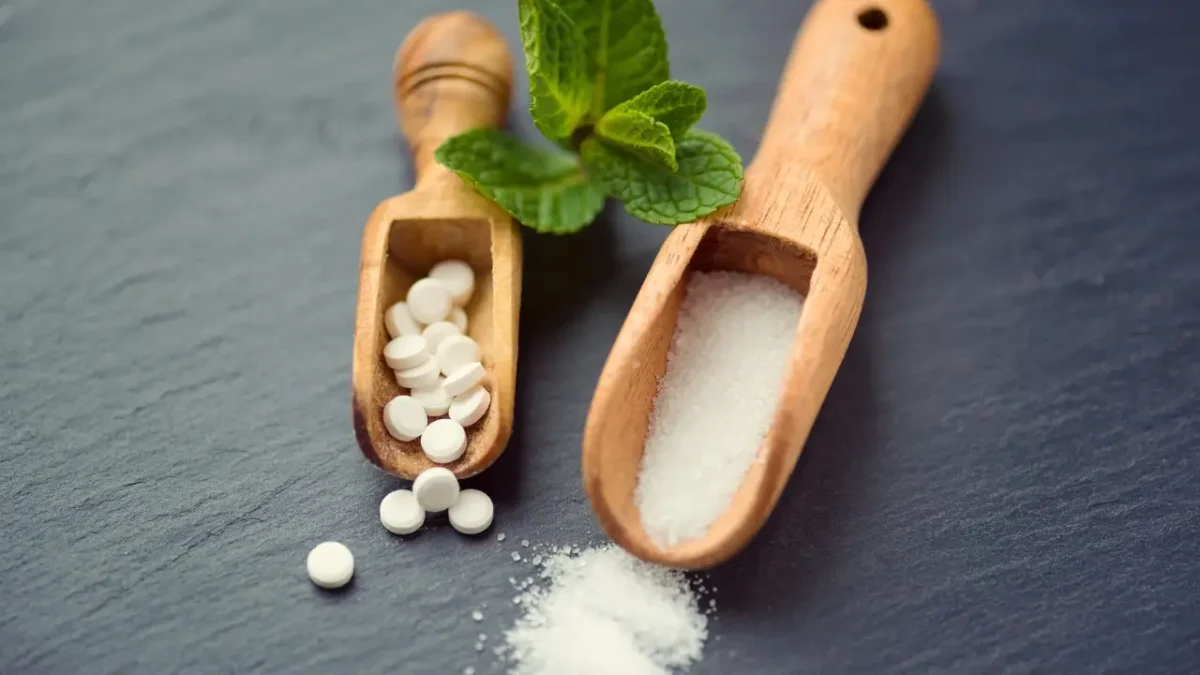
Most sugar alcohols are praised for their low-calorie content, yet they come with a cost. The digestive system struggles to break them down completely, leading to unpleasant side effects. Erythritol, xylitol, and sorbitol, in particular, are known for causing bloating, diarrhea, and cramping in sensitive individuals.
Once consumed, these sugar alcohols travel through the small intestine without being fully absorbed. Upon reaching the colon, gut bacteria feast on them, creating fermentation that leads to gas and discomfort. Some people experience only mild bloating, while others suffer from severe digestive distress. Sorbitol is especially notorious for its laxative effect, often found in sugar-free gum and candies.
Recent research also suggests a link between erythritol and cardiovascular risks. Some studies indicate that excessive consumption may contribute to blood clot formation, increasing the risk of heart disease. While these sugar substitutes might seem like a smart swap, their impact on gut health and overall well-being shouldn’t be ignored. Choosing sweeteners that don’t disrupt digestion can make all the difference.
4. Metabolic Mayhem – How Stevia and Monk Fruit Might Still Spike Cravings
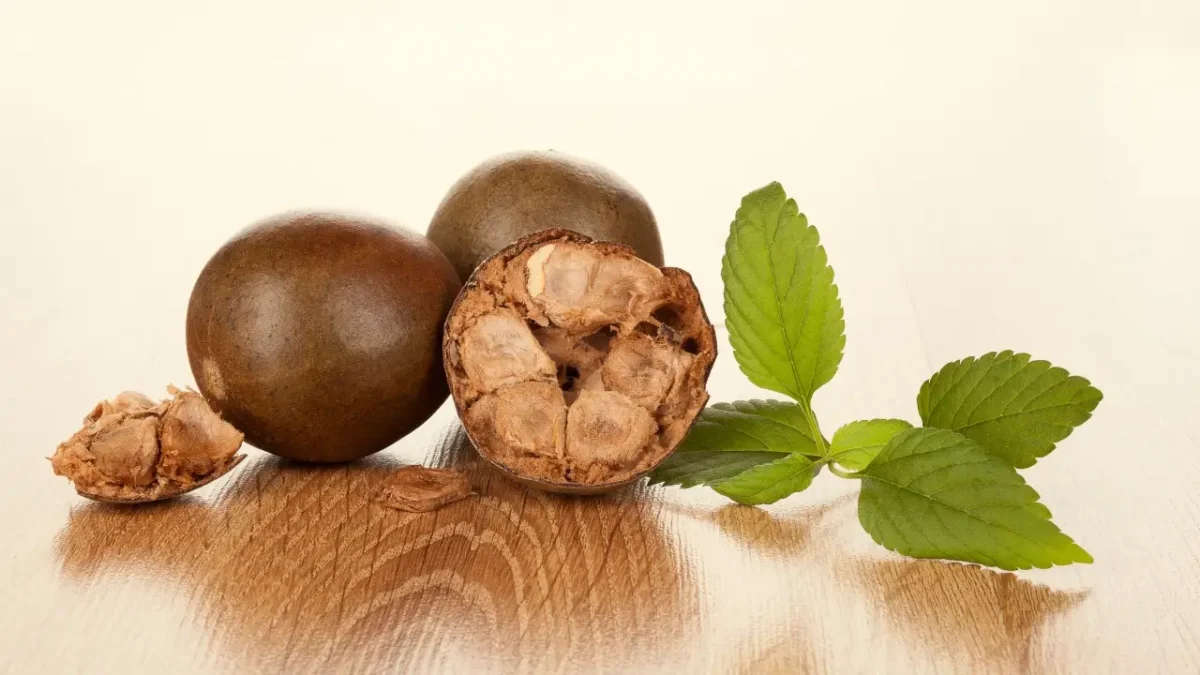
Stevia and monk fruit are often praised as safe, natural sweeteners, but they’re not entirely without issues. While they don’t directly raise blood sugar, they can still fuel cravings for sweet foods. The brain and body expect calories when something tastes sweet, but when those calories never arrive, it can lead to increased hunger and overeating.
Some research suggests that consuming non-caloric sweeteners may alter the way the body regulates energy. The expectation of sugar without the actual glucose to process can cause metabolic confusion. Over time, this may contribute to dysregulation of appetite and blood sugar control, particularly in individuals struggling with weight management or insulin sensitivity.
Another concern is their processing. Stevia and monk fruit don’t always come in their pure form. Many commercial brands mix them with sugar alcohols or fillers, which may create digestive issues or unwanted insulin responses.
Paying attention to ingredient lists is essential to avoid hidden additives. While they’re better than artificial sweeteners, relying on them too much can still keep the body trapped in a cycle of craving sweetness.
5. Artificial Sweeteners and Brain Fog – The Surprising Link to Cognitive Issues
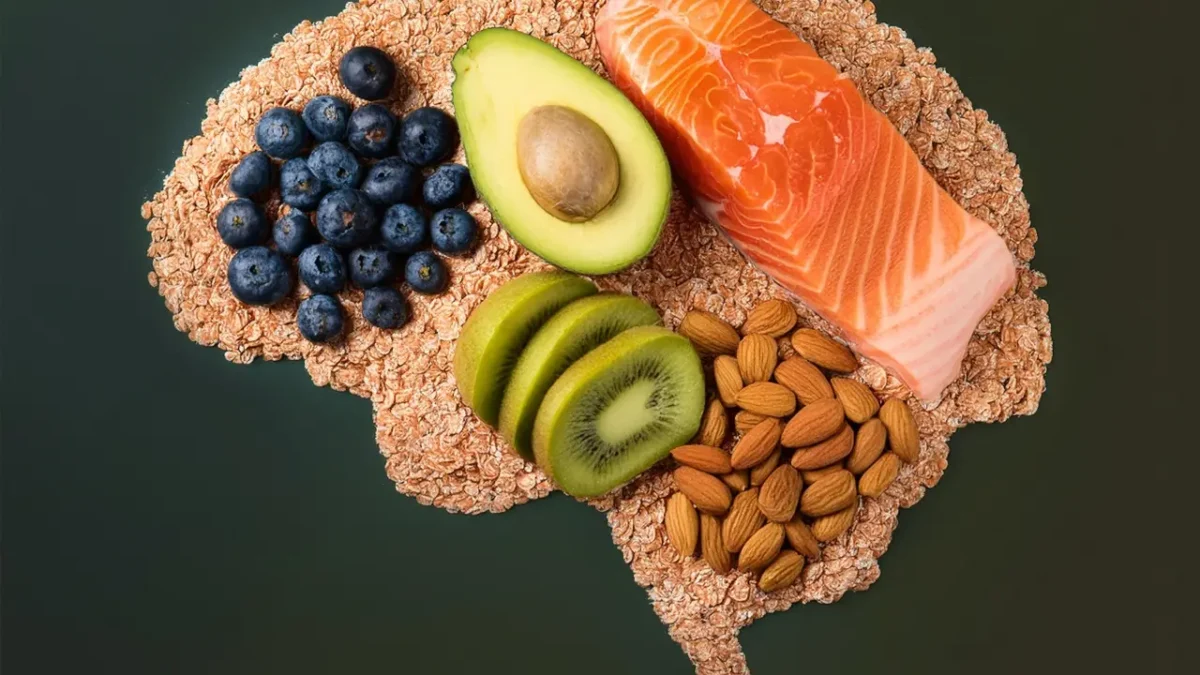
Artificial sweeteners such as aspartame, sucralose, and saccharin might save calories, but they could be harming the brain. Some studies link these chemicals to cognitive decline, memory issues, and even an increased risk of neurodegenerative diseases.
Aspartame, in particular, breaks down into methanol, which then converts into formaldehyde, a substance known to be toxic in high amounts. Over time, excessive intake may lead to inflammation in the brain, disrupting neurotransmitter function. This can manifest as forgetfulness, difficulty concentrating, or general mental fatigue.
Beyond potential toxicity, artificial sweeteners also alter gut microbiota. Since gut health and brain function are closely connected, any disruption to beneficial bacteria may influence mood and cognitive performance. Some research suggests that long-term consumption could contribute to anxiety and depressive symptoms.
While many people turn to artificial sweeteners to avoid sugar’s downsides, the effects on mental clarity should not be overlooked. Natural alternatives in moderation or focusing on reducing overall sweetness cravings is often a healthier long-term approach.
6. Hidden Weight Gain – Why Zero-Calorie Sweeteners May Sabotage Your Diet

Cutting calories seems like the best way to lose weight, but artificial and zero-calorie sweeteners can work against that goal. These sugar substitutes trick the brain into expecting real energy. When no actual calories arrive, hunger signals can increase, leading to stronger cravings and overeating.
Some studies suggest that frequent consumption of artificial sweeteners alters how the body regulates appetite. The sweetness signals food intake, but without the expected energy, the brain pushes for more food to compensate. This cycle can result in consuming extra calories later in the day, undoing any potential weight loss benefits.
Another concern is metabolic adaptation. Some research indicates that long-term use of these sweeteners may disrupt insulin sensitivity, making it harder to regulate blood sugar. Poor insulin response is linked to weight gain, particularly around the abdomen.
Relying on sugar substitutes instead of adjusting overall eating habits often backfires. Instead of helping with weight management, they can make it harder to control hunger and cravings. Choosing nutrient-dense whole foods and breaking the addiction to excessive sweetness tends to be a more effective long-term strategy.
7. Blood Sugar Rollercoaster – The Unexpected Effects of ‘Healthy’ Sugar Swaps
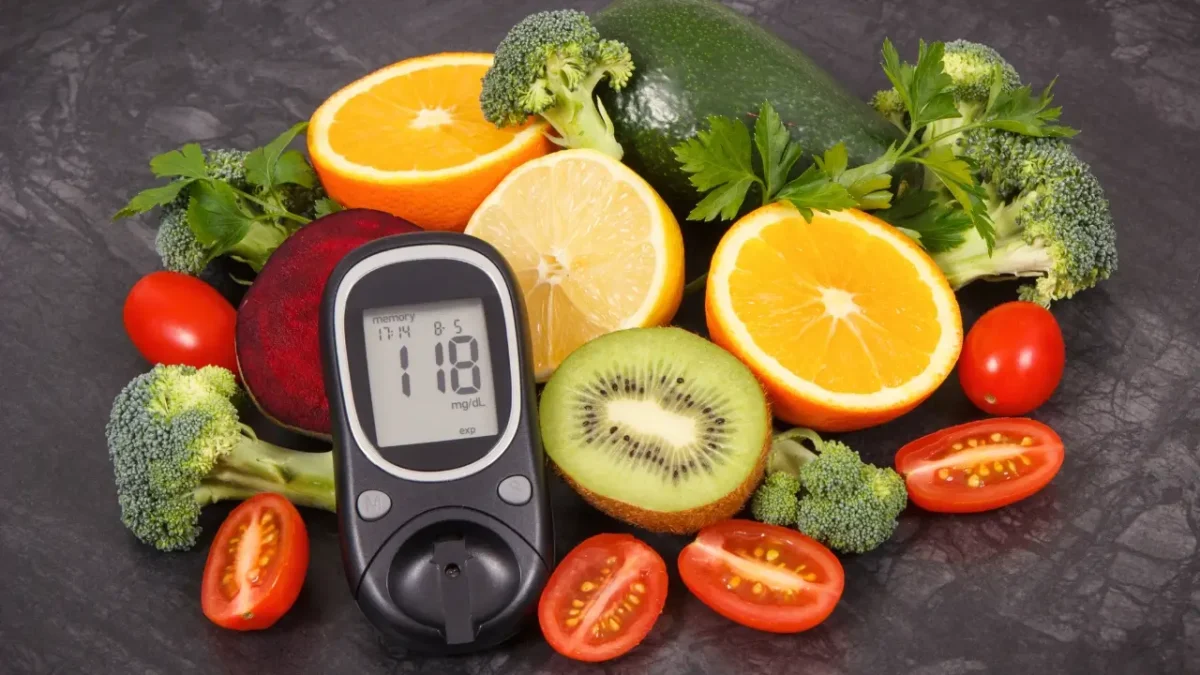
Some sugar substitutes claim to be blood sugar-friendly, but that’s not always true. Even natural alternatives like coconut sugar, honey, and agave can cause unexpected spikes and crashes. These swings can leave people feeling drained, hungry, and craving even more sugar.
The glycemic index (GI) is often used to measure how sweeteners affect blood sugar. While some alternatives have a lower GI than white sugar, they still contain glucose and fructose. Fructose, in particular, bypasses normal insulin regulation and heads straight to the liver. Over time, this process can lead to insulin resistance and metabolic issues.
Sugar alcohols and artificial sweeteners create a different issue. Even though they don’t contain glucose, they can still stimulate an insulin response in some individuals. The body anticipates sugar, preparing to process it. When real glucose doesn’t arrive, blood sugar can drop too low, triggering hunger and energy crashes.
Choosing truly low-impact options or reducing dependence on sweetness altogether helps avoid these blood sugar swings. Stabilizing energy levels means fewer cravings and better overall metabolic health.
Related Article:
8. Inflammation Overload – How Some Sugar Alternatives Are Just as Bad as Sugar
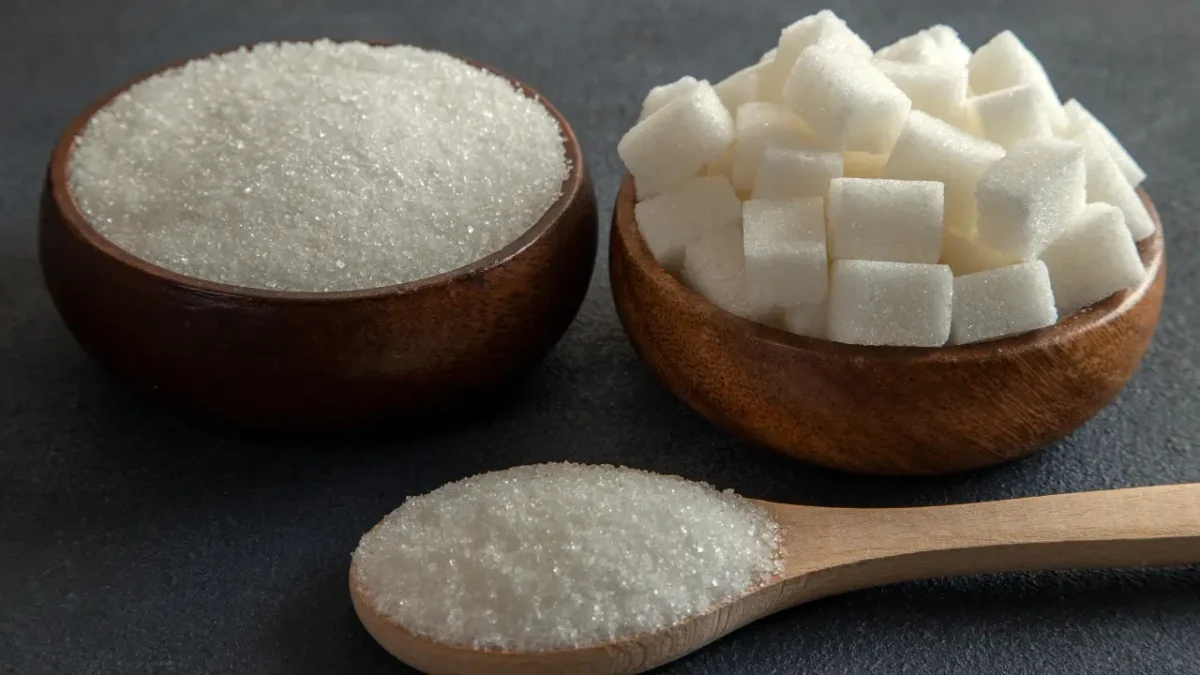
Chronic inflammation plays a role in many health issues, from joint pain to heart disease. Many people swap sugar for alternatives, thinking they’re reducing inflammation, but some sweeteners still contribute to the problem.
Fructose-heavy options like agave nectar stress the liver. Excessive fructose consumption has been linked to fatty liver disease, insulin resistance, and increased inflammatory markers in the body. Even though it’s marketed as a healthier option, it can create just as much metabolic chaos as regular sugar.
Artificial sweeteners bring their own set of risks. Some research suggests that sucralose and aspartame may disrupt gut bacteria, increasing inflammation and digestive issues. The microbiome plays a huge role in immune function, and an imbalance can contribute to long-term health problems.
Sugar alcohols can also cause trouble. While they may seem harmless, consuming them in large amounts can lead to bloating and gut irritation. A stressed digestive system often leads to systemic inflammation, making symptoms worse over time. Cutting back on overly processed sweeteners and focusing on whole, unprocessed foods is often a better path to reducing inflammation naturally.
9. The Bitter Aftertaste Conundrum – What Your Cravings Are Telling You

Taste buds don’t lie. That lingering bitterness from stevia or monk fruit isn’t just an inconvenience, it’s a clue about how the body processes sweetness. Some people experience an unpleasant aftertaste with certain sugar alternatives, while others don’t notice it at all.
This reaction often comes down to individual taste perception. Some compounds in sugar substitutes bind to bitter receptors on the tongue, creating a sharp or metallic flavor. This bitterness can actually fuel more cravings for real sugar. The brain wants that clean, familiar sweetness and may push for extra calories to compensate.
Another issue is psychological. When something tastes “off,” the mind feels unsatisfied, leading to additional snacking or searching for something to balance it out. This can make it harder to stick to a healthy eating plan.
Even though these alternatives reduce sugar intake, they keep the taste for sweetness alive. Over time, retraining taste buds to enjoy naturally sweet foods, like fruits or subtly sweet vegetables, can reduce cravings without relying on substitutes.
10. Hidden Additives – What They’re Not Telling You About Processed Sweeteners
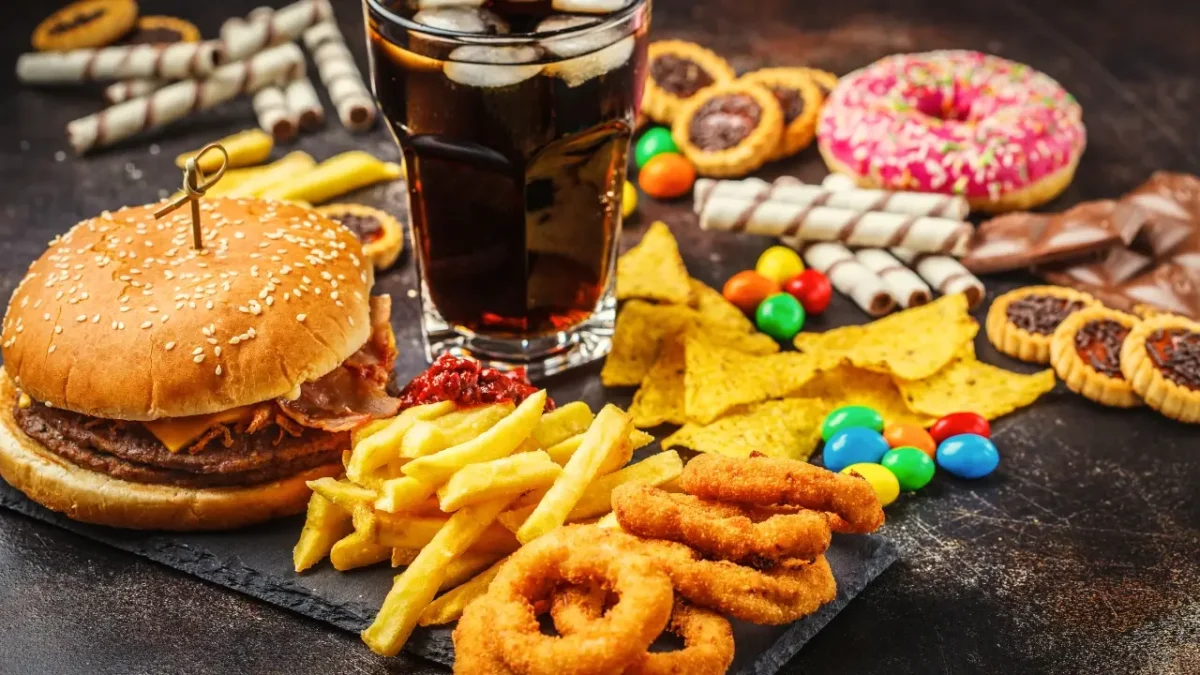
Many sugar substitutes aren’t as pure as they seem. The label may say “stevia” or “monk fruit,” but a closer look often reveals fillers, preservatives, or chemical processing agents that affect health.
Maltodextrin is a common additive found in powdered sweeteners. Despite being marketed as a natural ingredient, it has a high glycemic impact, meaning it can spike blood sugar. Some stevia and monk fruit products contain more maltodextrin than the actual sweetener itself.
Sucralose, another popular alternative, undergoes a chlorination process during manufacturing. While marketed as safe, some studies suggest it may alter gut bacteria and potentially cause digestive issues. The same applies to aspartame, which breaks down into byproducts like methanol that the body must process.
Even “natural” sweeteners can be heavily refined. Some brands blend monk fruit or stevia with erythritol, which can cause digestive distress in some people. Checking ingredient lists and choosing pure, minimally processed options is the best way to avoid these hidden additives. Making informed choices prevents unintended health consequences down the road.
11. Impact on Hormones – How Sugar Alternatives Could Be Disrupting Your System
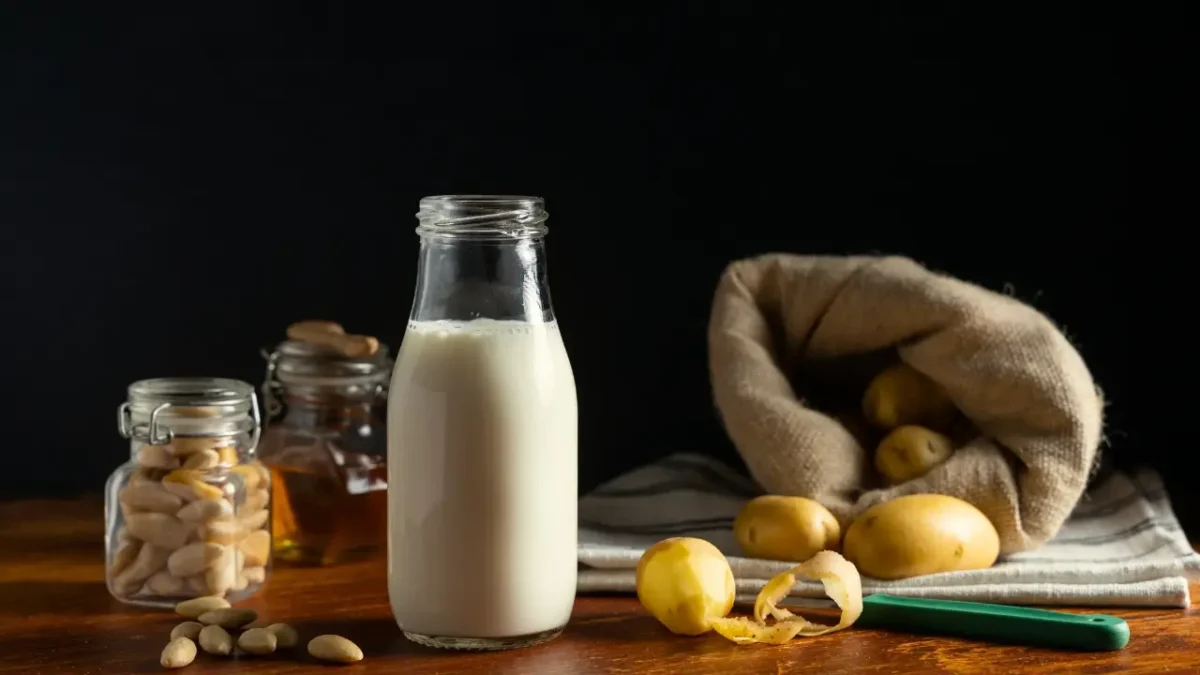
Hormones control everything from appetite to metabolism, and sweeteners, natural or artificial, can interfere with this delicate balance. The body expects calories when tasting sweetness. When those calories don’t arrive, it can disrupt signals that regulate hunger and satiety. Over time, this confusion may lead to increased cravings and overeating.
Insulin, one of the most important metabolic hormones, doesn’t just respond to sugar. Some studies suggest that artificial sweeteners can still trigger an insulin response, which can lead to insulin resistance over time. This makes weight management harder and increases the risk of metabolic issues.
Sweeteners may also influence cortisol, the stress hormone. Frequent spikes in blood sugar, caused by sugar substitutes that still have an impact, can lead to cortisol imbalances, making it harder to burn fat and regulate energy. Additionally, some compounds in sugar alternatives may interfere with gut health, which plays a role in hormone production.
Relying too much on sweet substitutes can keep the body in a state of hormonal imbalance. Reducing overall sweetness in the diet helps restore proper hormonal function, making it easier to maintain stable energy and appetite control.
12. The Deceptive Labels – Why ‘Keto-Friendly’ and ‘Diabetic-Safe’ Aren’t Always True
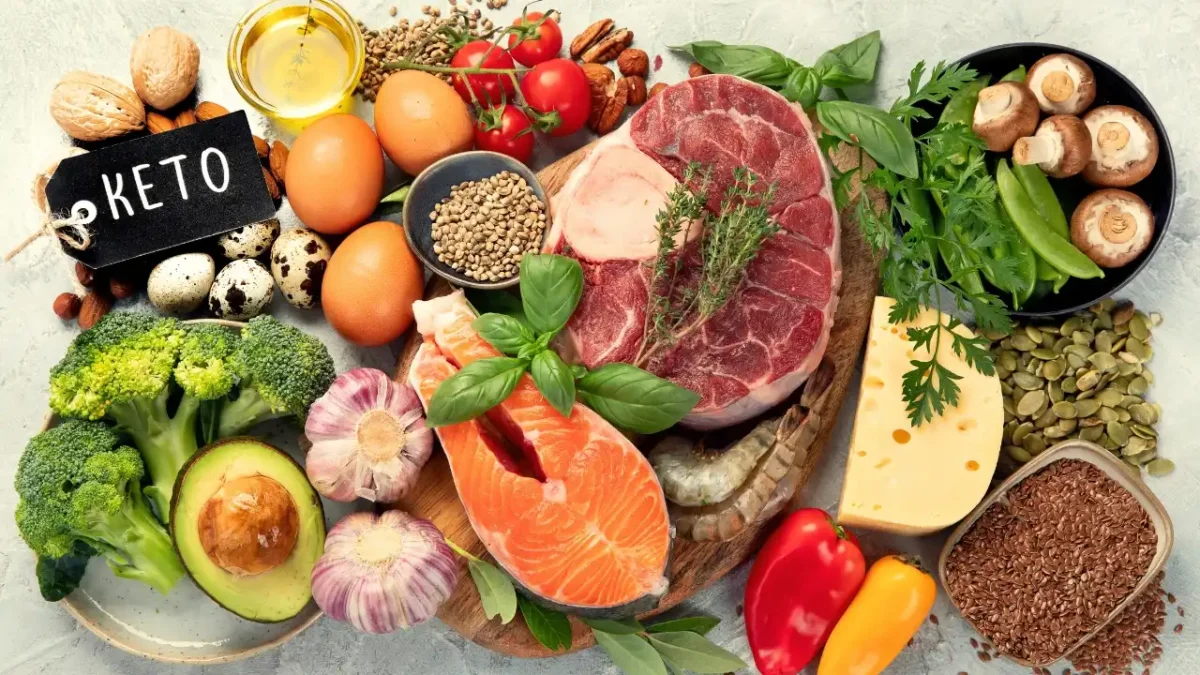
Food packaging is designed to sell, not necessarily to inform. Terms like “keto-friendly” and “diabetic-safe” create a sense of security, but many products carrying these labels contain ingredients that spike blood sugar or disrupt metabolism.
Some so-called keto sweeteners include maltodextrin, which has a glycemic impact higher than regular sugar. Others mix stevia or monk fruit with fillers like dextrose, negating any blood sugar benefits. Even sugar alcohols, often found in these products, can cause mild insulin responses in some individuals.
Diabetic-friendly labels can be misleading too. Some sugar alternatives may not immediately raise blood sugar but can still contribute to insulin resistance over time. Agave nectar, for example, is marketed as a low-GI option, yet it’s packed with fructose, which overloads the liver and leads to metabolic issues.
Reading ingredient lists matters more than trusting marketing claims. Just because something fits within a certain diet label doesn’t mean it’s good for long-term health. Understanding what’s actually in the product helps avoid unintended consequences.
13. Digestive Nightmares – The Bloating and Gas No One Warns You About

Many sugar alternatives come with a side effect few people expect, digestive distress. Bloating, gas, and stomach cramps can occur when the body struggles to process certain sweeteners. Sugar alcohols like erythritol, sorbitol, and xylitol are especially known for causing trouble.
Unlike regular sugar, these compounds aren’t fully absorbed in the small intestine. Instead, they reach the colon, where gut bacteria ferment them. This fermentation produces gas, which leads to bloating and discomfort. In some cases, excess consumption can even trigger diarrhea.
Artificial sweeteners bring their own issues. Some studies suggest that they disrupt gut bacteria, altering the microbiome in ways that may lead to inflammation or digestive imbalances. Since gut health plays a key role in immunity and metabolism, any disruption can have long-term effects.
People who experience bloating or stomach pain after consuming sugar substitutes may want to reconsider their choices. Choosing naturally sweet whole foods or reducing dependence on sweet flavors altogether can ease digestive discomfort and improve gut health.
14. The Addiction Cycle – How ‘Healthy’ Sweeteners Keep You Hooked on Sweetness

Sugar addiction isn’t just about calories, it’s about the brain’s response to sweetness. Even without actual sugar, artificial and natural sweeteners can keep cravings strong, making it harder to break free from the cycle.
Sweet flavors trigger dopamine, the brain’s reward chemical. This response reinforces the desire for more, creating a loop that keeps people reaching for sweet foods. Even zero-calorie options don’t break this habit. Instead, they can intensify the need for sweetness, making whole, unsweetened foods less appealing.
Some research suggests that frequent consumption of sugar substitutes may alter taste perception. The more intense the sweetness, the harder it becomes to enjoy naturally sweet foods like fruit. Over time, this can make healthier choices feel bland, pushing people back toward processed sweets.
Breaking free from the cycle means retraining taste buds. Cutting back on artificial sweetness, even from natural sources, helps reset cravings. Over time, whole foods become more satisfying, making it easier to maintain a balanced diet without constantly seeking a sugar fix.
15. What to Use Instead – Truly Healthy, Safe, and Natural Sweeteners That Work
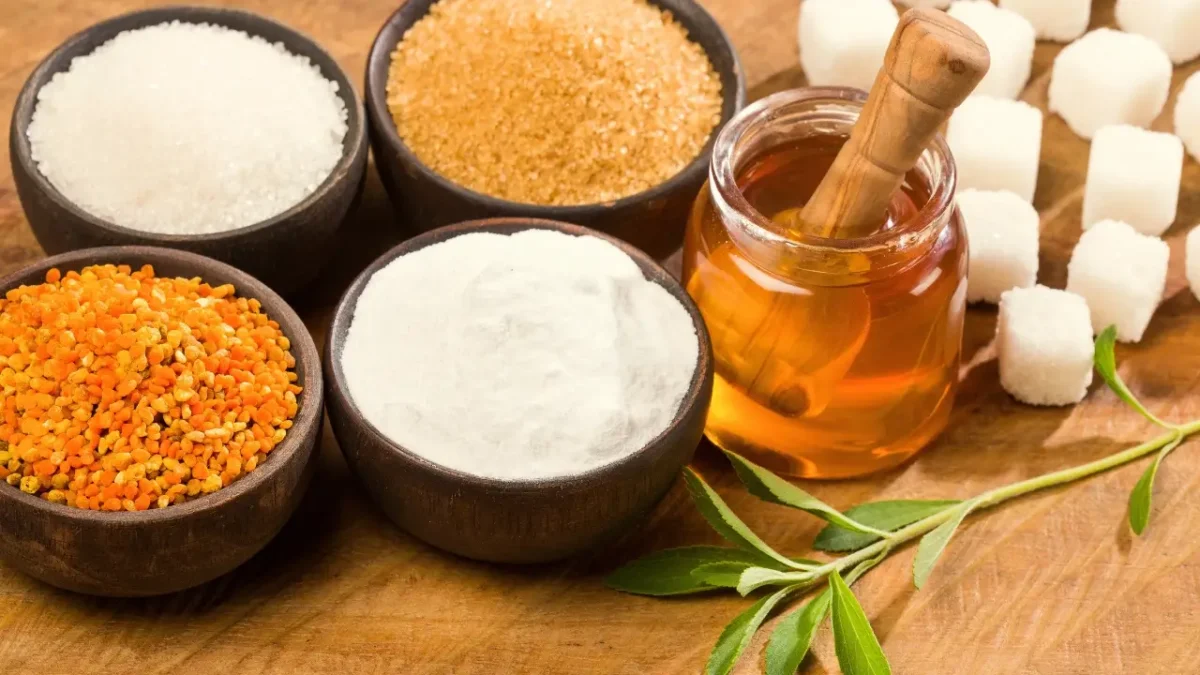
Finding a safe, natural way to satisfy sweet cravings isn’t impossible. Some alternatives provide sweetness without the harmful effects of artificial and processed substitutes. The key is choosing options that work with the body rather than against it.
Raw honey, in moderation, offers antioxidants and enzymes that refined sugars lack. While it still contains natural sugars, it’s far less processed than other sweeteners. Pure maple syrup provides minerals like manganese and zinc, making it a better choice than chemically processed alternatives.
For those looking to avoid sugar completely, whole fruits like dates or mashed bananas add natural sweetness to recipes. Unlike refined sugar, these options contain fiber, slowing sugar absorption and preventing blood sugar spikes.
If zero-calorie options are necessary, choosing 100% pure stevia or monk fruit, without fillers like erythritol or dextrose, is the best route. These natural extracts provide sweetness without major metabolic disruption.
Rather than relying on sugar substitutes, gradually reducing the need for added sweetness can lead to better long-term health. Over time, taste buds adjust, and naturally sweet foods become more satisfying.

